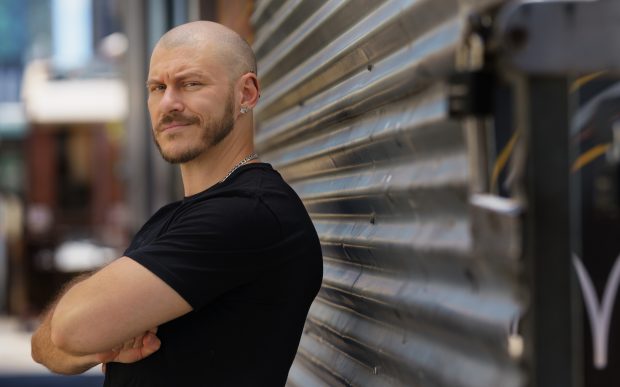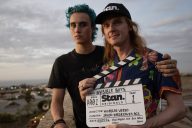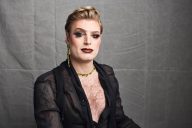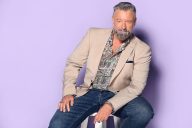After much critical acclaim, Holden Sheppard’s gay coming-of-age novel Invisible Boys is now a television series. Holden spoke to me about the adaptation and what lies at its heart.
Tell us about growing up in Geraldton.
I have bulk affection for Gero, as we call it, and loved growing up there. It’s four hours north of Perth, between the ocean and the desert, and if you drive three hours in any direction, there’s nothing except tiny towns and farms. Everything revolved around footy, backyard cricket and barbecues. That’s all reflected in the TV series, and how I loved that experience, but the downside was the claustrophobia of being homosexual in a town that size. I’m from a large, noisy Italian-Australian family with traditional Sicilian and Catholic vibes. Dad had an earth-moving company and my brothers, and I worked for him. It was a very blue-collar world which I loved, but it made coming to terms with being gay difficult.
What was your coming out like?
I came out just before my 20th birthday. People say I was brave to come out in a country town, but I didn’t. I waited until university, where I met a bloke who became my boyfriend, and he’s now my husband (Raphael). Up until then, I had struggled a lot mentally and questioned if I was straight, gay or bisexual, and you see some of that reflected in the Invisible Boys characters. You see all the different stages, including in Charlie’s character where he’s out, doesn’t care and gives the finger to the world.
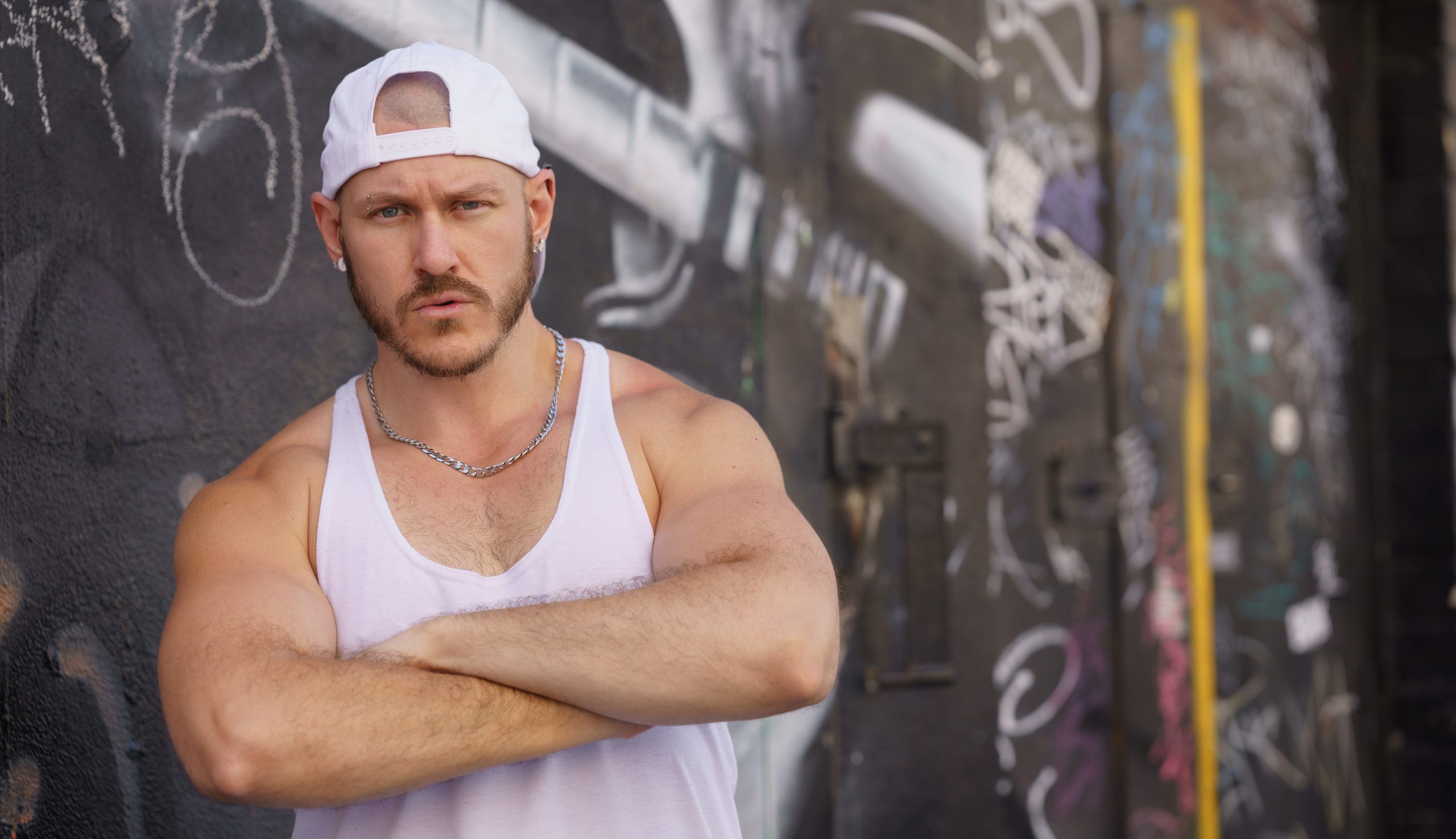
Holden Sheppard Photo: Mark Flower
Sounds like the typical, yet unfortunate journey for many gay men.
Yes, I went through a mental health crisis and had to reach out to a support service. When I was at my lowest point, I didn’t want to be on the planet anymore. I was suicidal for a time, but I got through it. I finally came out to my mother, and she was relieved because she thought I was going to tell her I got a girl pregnant! But she was like, “Oh, that’s fine”. But I was terrified about telling my dad because he was so blokey. I told him one day after work, and he stood up, hugged me and said, “You’re my son, and I love you”. It couldn’t have been better. He’s not the kind of guy who was prepared for having a gay son, but he did his best from the very beginning. The first time I introduced him to Raphael, he gave him a Collingwood football beanie to show he was a part of the family – and a Collingwood supporter!
“At my lowest point, I didn’t want to be on the planet anymore. I was suicidal for a time, but I got through it.”
It’s easy to see how there’s a semi-autobiographical element to Invisible Boys.
The plot and events are fiction, but the thrust and emotional truth of the story are drawn from my life. At the core, the characters are from the different stages of my growing up. But Invisible Boys probably would never have been written if I had been successful as a fantasy writer. I wanted to be a mainstream fantasy fiction writer, like Matthew Reilly. I wanted his kind of fame and fortune. I spent three years trying to get my first book published, but no one was interested. It wasn’t gripping and had no vulnerability or heart. But then I read the Ernest Hemingway quote, “Write hard and clear about what hurts”. In a very emo way, I made a list, and what had hurt the most was growing up gay in the country. It had traumatised me in a lot of ways, so I started to write about it, and Invisible Boys came roaring out of me within two months.
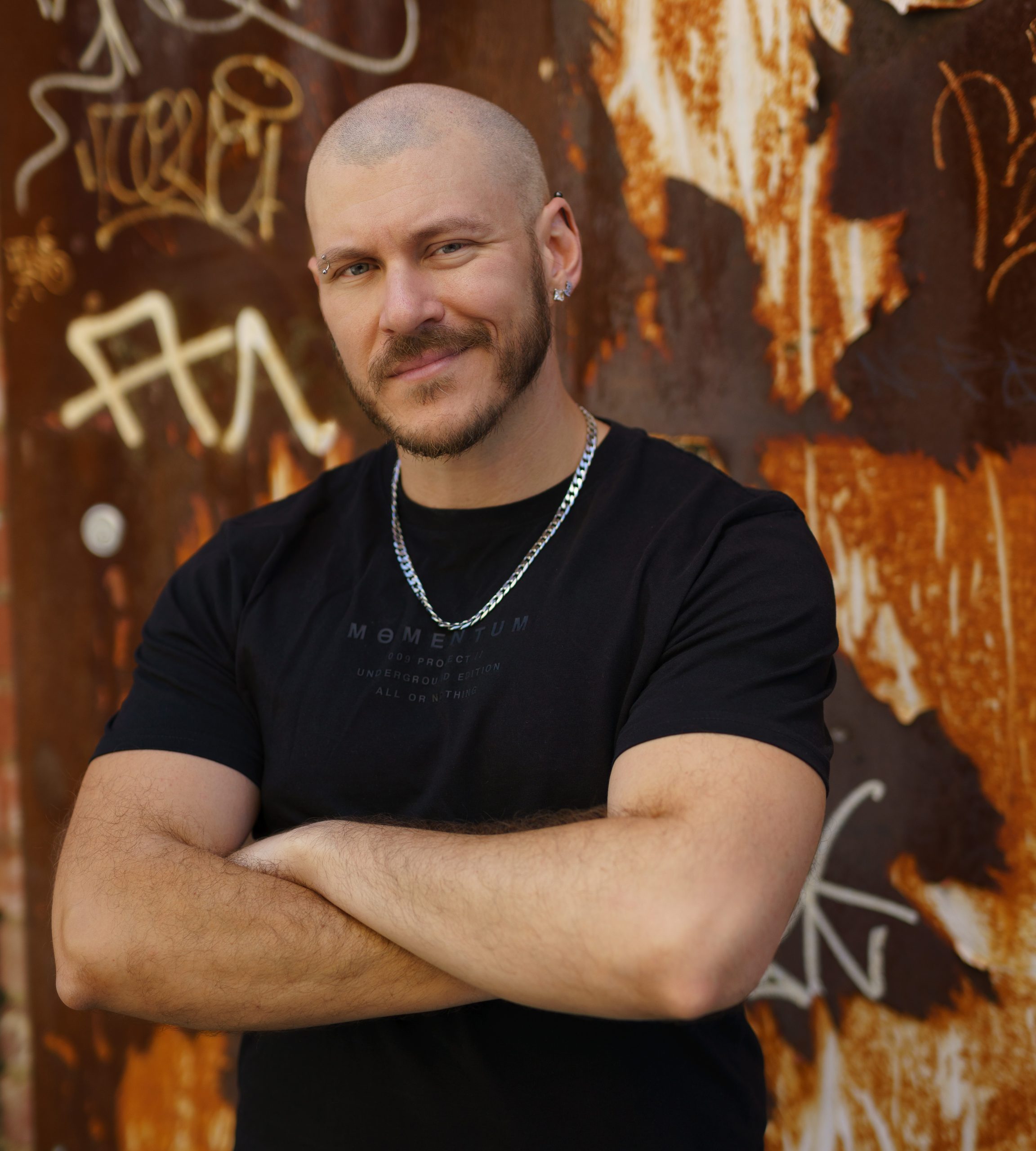
Holden Sheppard Photo: Mark Flower
Invisible Boys has had so many accolades. How does that feel?
I’ve run the full gamut of emotions! When it first began picking up awards I had major impostor syndrome. I had always thought of myself as commercial and not acclaimed literary. I even convinced myself that maybe I was the only one who went for the award, and that’s why I got it! I had negative self-talk about it, but when I won the Kathleen Mitchell Literary Award, worth around fifteen grand, I thought, “Okay, that’s now three awards. This can’t be a coincidence. There’s a chance I’m not an imposter.” I think the accolades reflect people’s openness to reading something about trauma and shame and what gay people go through. And if straight people like it, then that shows empathy and openness. Gay readers tell me they feel seen through the dark stuff in the story, which many of us go through. There’s that feeling of shame, especially as teenagers.
“I never went through conversion therapy but to some extent, I did it to myself by trying to pray the gay away.”
Do people write to you, or approach to say thank you for relating their stories, even from Geraldton?
Probably more from Gerro than anywhere. A lot of guys have contacted me because no one has ever written about growing up gay there. After Invisible Boys was published, I was getting emails and DMs daily from gay men somewhere in Australia, New Zealand, England, Europe, Asia and North America, where they all had similar experiences. They, as well as city boys, had grown up feeling the same shit.
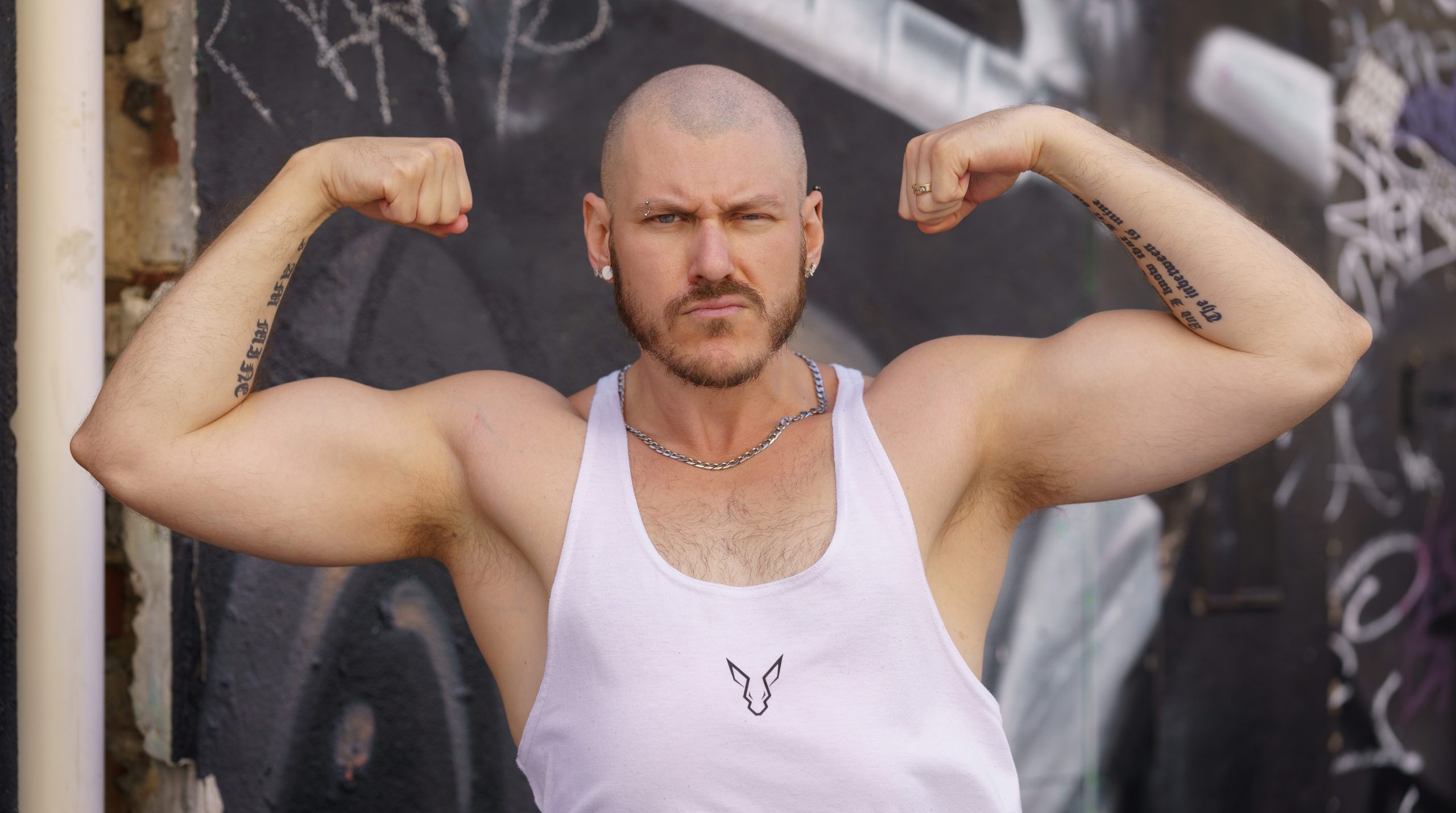
Holden Sheppard Photo: Mark Flower
It must feel great to have made such an impact globally!
I’m very grateful. I know how it feels to find a book or a movie that can move you. I remember watching Boy Erased – the movie adaptation of Garrard Conley’s memoir about gay conversion therapy and how he survived as a teenager. I sobbed. I never went through conversion therapy but to some extent, I did it to myself by trying to pray the gay away and be a better Catholic boy. Watching that film ruined me, and I even sent Garrard a message. So, when guys reach out to me, I’ll reply. I’ve responded to every bit of fan mail I’ve ever received. I don’t know if that’s sustainable forever!
“I hope Invisible Boys builds some empathy for us, especially as we’re in an era with a resurgence in homophobia”.
Since writing your books, have you experienced homophobia?
An inevitable part of being a public homosexual is that you’ll cop some crap. It’s mostly social media trolls, which don’t faze me too much, and I block them. For me, that sort of thing started when I wrote an article for the Huffington Post in 2017 on same-sex marriage. It went viral, and while lots of people loved it, I got a lot of homophobic trolling. One was all caps saying, “Gay Nazis must burn!”. Some people are very unhinged behind the keyboard! It doesn’t happen so much in person, but I’ve had booksellers refusing to sell or stock my book. I’ve also been interrupted during a speaking engagement at a high school. I was talking about how some books with LGBT content had been challenged or banned, and a teacher interrupted me in front of seventy students to say, “That’s because those books are gay pornography”. I said, “Um, no they’re not!” I ended up getting a formal apology from the Minister for Education. Shep takes things to the top!
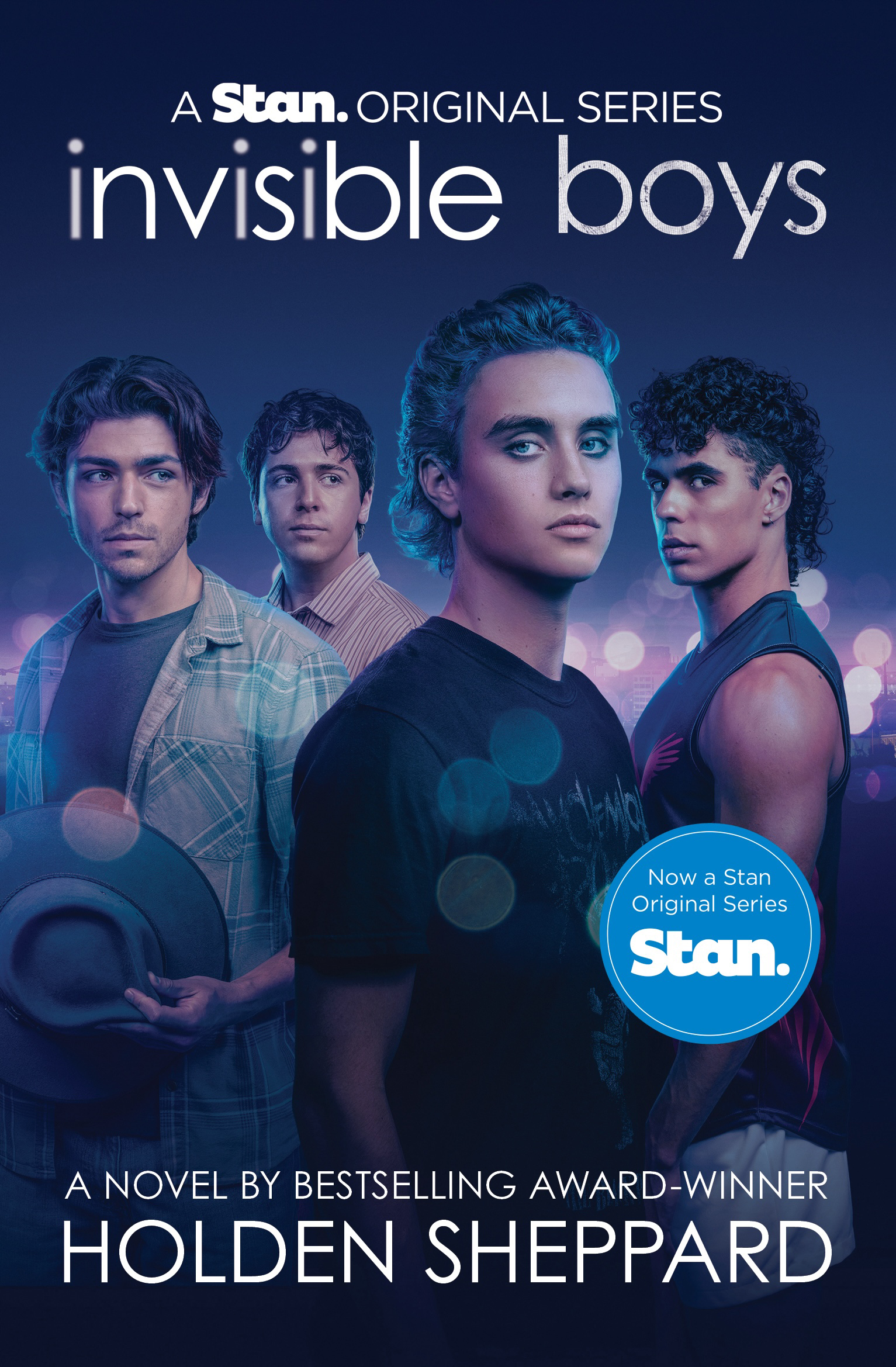
Is it surreal to see Invisible Boys made into a series? Especially on location in your hometown?
Surreal is the word. Having watched the series, Geraldton looks incredible on screen. The town was buzzing, and people got to be extras which was exciting for them. When I gave the filming rights away, I had a few must-haves. It had to be just as pretty and dirty as the book, to represent the different gay boys. I didn’t want stereotypes. It had to be the punk, footballer, migrant and farm boy – and it had to be filmed in Geraldton. When I met the director (Nicholas Verso), he listed those things without me saying a word. I thought, “Well this guy clearly gets what the show needs”. The stunning cinematography makes me realise how underrated Geraldton is.
“The whole adaptation feels incredibly faithful to the book. I think it’s fucking outstanding!”
Great for the tourism campaigns!
I’m not sure how that would look. Here’s the toilet block where Charlie hooked up! (Laughing)
You also had a part in writing some of the screenplay. How was that process?
I wrote two of the episodes which were very ‘Italian’. One involved the Italian wedding, and the other the tomato picking and source making, which was something my cousins and I did every summer. We loved the sauce making and bringing these things into the show gave it some authenticity. The thing is, writing a novel is more isolated, where you play God, and what you say goes. But screenwriting is very collaborative and everyone in the writer’s room for Invisible Boys was LGBT, so we all brought a gay authenticity to the experience. I learned a lot and I think I became a better novelist. In screenwriting, you need to consider the beats and if things are believable on-screen. I’m currently writing my fourth novel and it’s made my writing sharper.
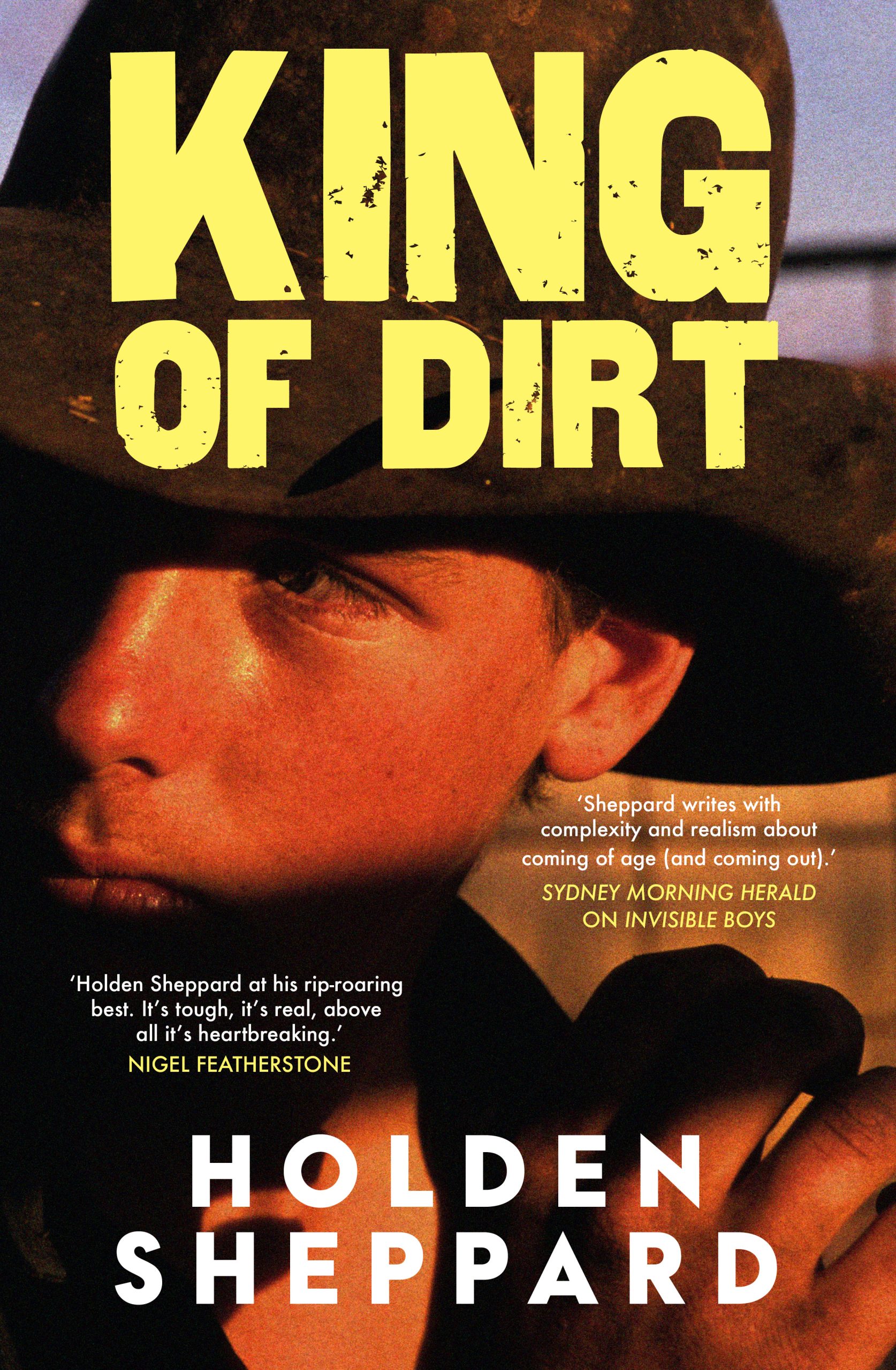
How do you cope with writing about dark themes?
It’s challenging to write about dark times in your own life. People have a perception that I had a hard time when I was young and then coming out fixed me. But it’s not that easy. Coming out doesn’t fix all your mental health issues or mood disorders. My mental health is complex and something I will continue to live with and manage. So, when I dive into this kind of trauma, I need to be careful. I had to go to therapy first and process what I’d been through before I could write about it. Some people think it must be cathartic to write about your life, but writing is not therapy. Therapy is therapy. If you want to write about those past experiences, it should no longer be an open, active wound. It should be years later when it’s more of a scar. I waited ten years. It’s also important to have a switch-off strategy and that’s why the gym is important to me. I lift weights and feel the endorphins!
What do you think of Invisible Boys’ four lead actors?
I could speak for an hour about how perfectly cast they are. All four of them get to flex their acting muscles, which is next level. I feel incredibly proud of them, and they’ve done those characters justice. They each bring something very special in their portrayals. The whole adaptation feels incredibly faithful to the book, and its heart. I think it’s fucking outstanding!
“A teacher interrupted me in front of seventy students to say, “Those books are gay pornography”.
Is there one character you relate to the most?
Zeke is probably the most like me growing up. Watching him was the most surreal part, mainly because he’s a better-looking version of me! (Laughing) But it was, at times, like watching my childhood unfold.
Like many writers, did you get a traditional cameo?
I was given a little cameo in episode five. It’s when the character Hammer is having his AFL tryouts, and I play a recruiter. I hadn’t realised how big the production would be! There were hundreds of people involved in bringing it to life. Sadly, my cameo was cut in the final edit, but if you freeze-frame it, there’s a half-second where you see me in the distant background. If there’s a season two, maybe I’ll get a close-up.
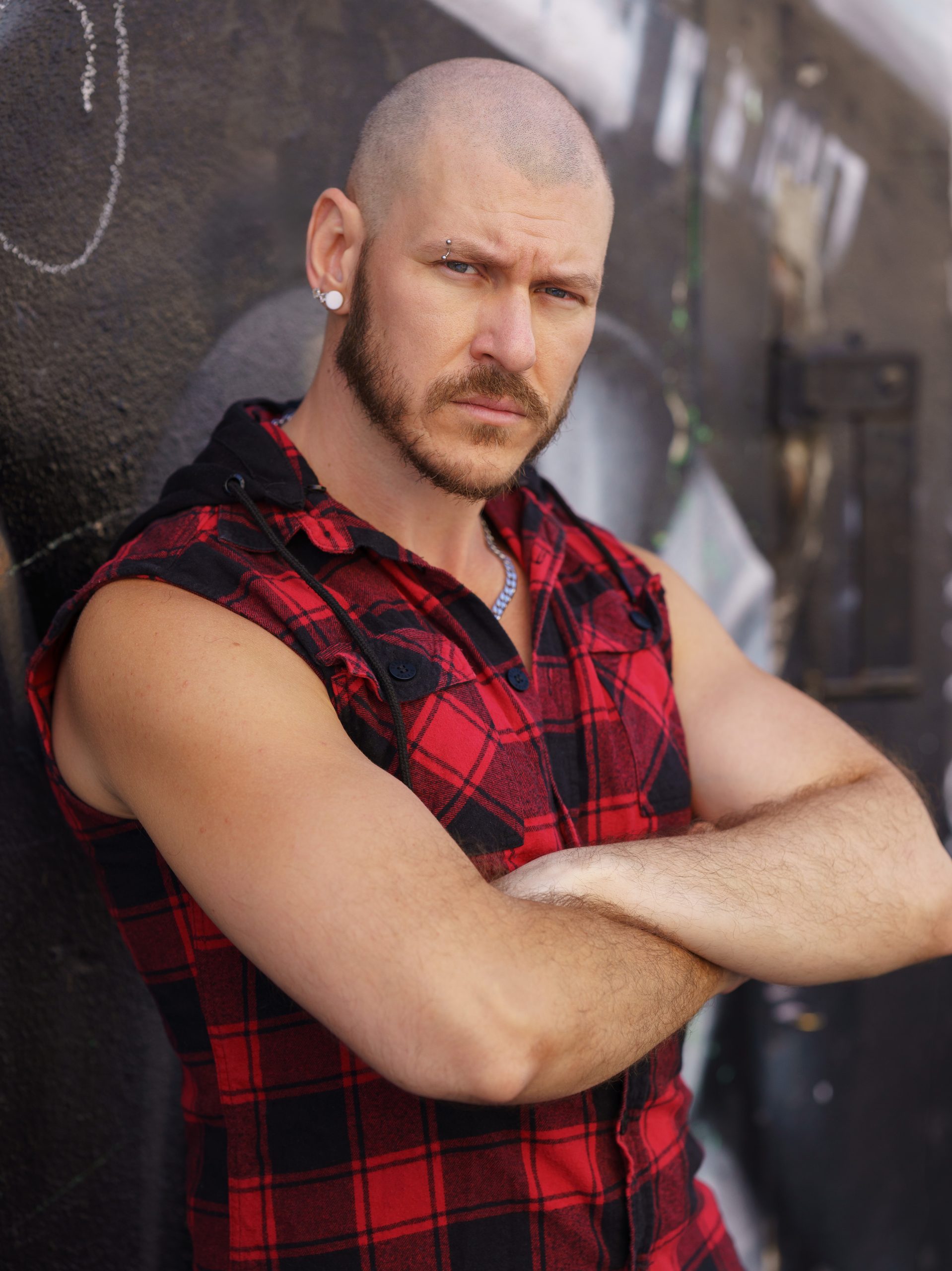
Holden Sheppard Photo: Mark Flower
Speaking of which, is there an Invisible Boys sequel in the works?
In terms of the book, yes, I recently received a grant to write the sequel which I’ve now written, and it will come out after my next novel King of Dirt. I can’t say too much, but I think readers will be very satisfied with the sequel.
What is King of Dirt about?
It’s my first novel, purely for adults. It’s about Jack Brolo, a rough-as-guts tradie who has to confront his bisexuality. He returns to his hometown of Geraldton, where he fell in love with a schoolmate at eighteen. Yes, it’s another Gerro story, but unlike Invisible Boys, this is about being in your thirties and returning home.
Something of a tradie yourself, your social media posts get a lot of attention towards your physique!
(Laughing) I do love showing my progress at the gym. I’ve had a life where I’ve used a lot of alcohol and substances, which led me down some unhealthy paths, so finding the gym has been very helpful for my mental and physical health. I love being a very armature bodybuilder, but a better term would be ‘gym rat’ because I don’t quite have the physique yet. As a writer, you’re constantly in your head and the gym is a great way to get out and into your body. It’s my happy place. But I feel deeply for my straight followers who like my writing yet get those Flex Friday and Double Biceps posts! (Laughing).
What do you hope audiences will take away from seeing Invisible Boys, with both the series and the re-released novel?
I hope Invisible Boys shows straight viewers the real side of what young gay men go through. It doesn’t hold back, and it’s not beholden to what straight people might wish we were. If you look at something like Heartstopper, and I’m not dissing it, but it’s very squeaky clean and safe, where the boys are very neutered and desexed. But Invisible Boys is grittier, and we do have sex, which defines a lot about our lives. I hope the story builds some empathy for us, especially as we’re in an era with a resurgence in homophobia. Recently, a woman at one of my events told me she was a devout Catholic and didn’t believe homosexuality was okay. I thought, “Oh god, here we go!” But then she said, “Having heard you talk, I hadn’t realised what you went through, and I’m sorry”. She bought the book, got it signed and became a big fan. I think stories have the power to do that. Some people have a perception that gay people are bad or sinful, but when they watch or read something like Invisible Boys, they realise we’re just human beings and nothing particularly threatening. I want this show to help gay people feel seen and to feel okay about who they are – without any shame.
What advice would you give to aspiring writers?
Just start and let the first draft be shit, because a lot of us, me included, spend a lot of time planning, preparing and intending to write this great novel – one day. For years, I made notes and wrote down ideas, but I was too scared to start writing because I thought I needed to be as good as other published works. But don’t put it off. You’ll be a lot closer to your goal by writing a draft, even if you feel unready. And don’t have an expectation of quality. If it’s crap, that’s okay because you can edit the page, but you can’t edit a blank page. Also, lean into your unique voice. Just because your own life may feel boring, doesn’t mean it’s boring to others. It may be incredibly interesting!
Invisible Boys is steaming now on Stan
King Of Dirt will be released on 3 June by Pantera Press
Follow Holden on Instagram @holdensheppard
If you or anyone you know requires help, contact Lifeline on 13 11 14 or Headspace on 1800 650 890
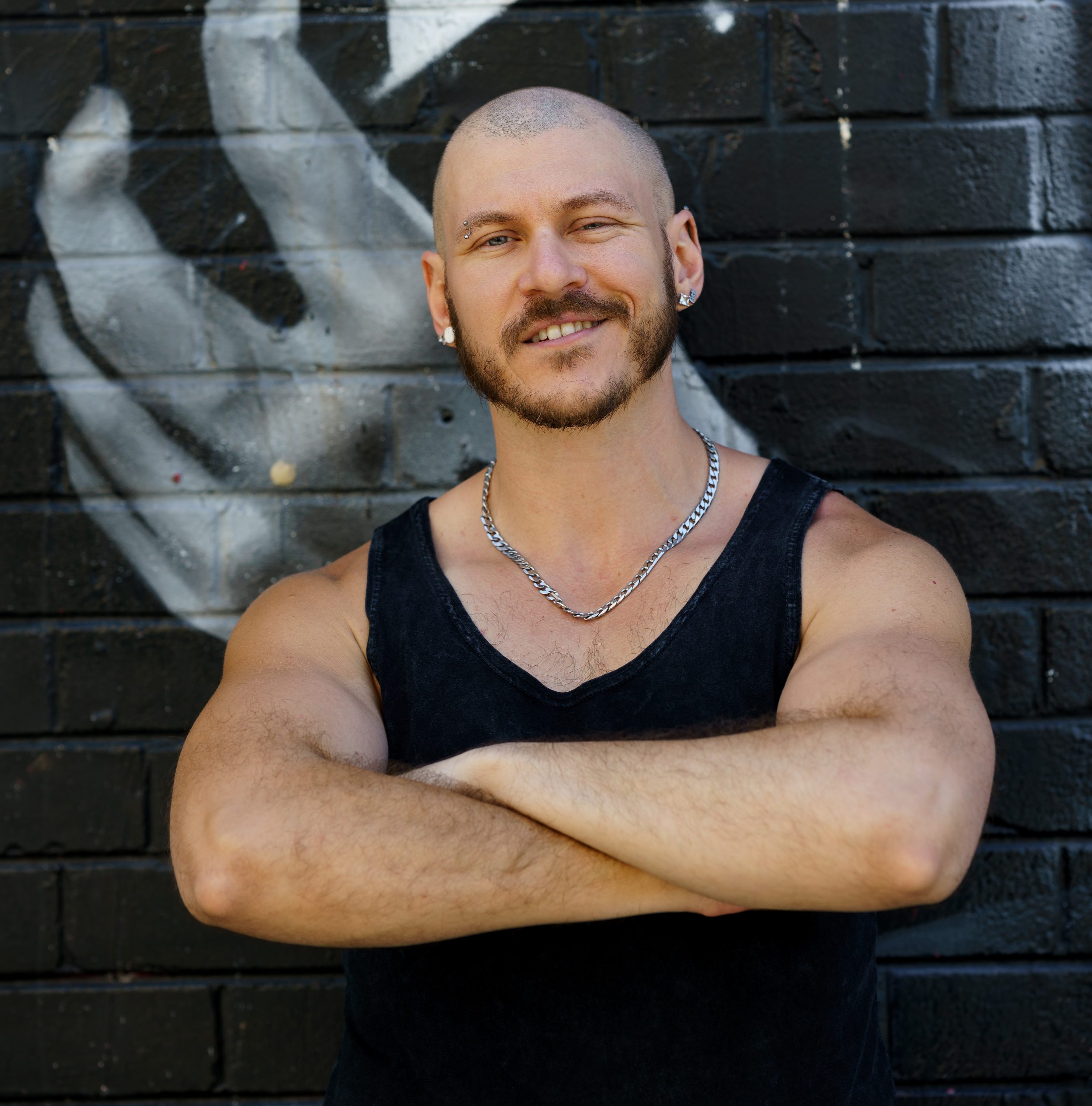
Holden Sheppard Photo: Mark Flower

